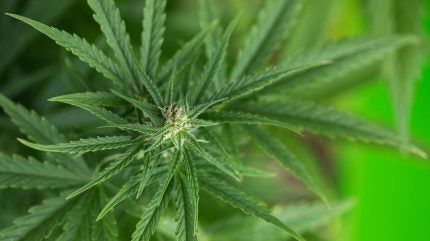
An investigational cannabinoid (CBD) derived therapy is advancing to a Phase II trial to investigate its effects on irritability stemming from autism spectrum disorder (ASD) in children and adults.
The Phase II trial by US company DeFloria will examine the safety and tolerability of AJA001 among 60 adolescents and young adults aged between 13 and 29. The trial aims to establish a titration regimen and efficacy signals to inform dosing levels for a future Phase III study.

Discover B2B Marketing That Performs
Combine business intelligence and editorial excellence to reach engaged professionals across 36 leading media platforms.
The announcement comes alongside a confirmation that the company has secured an investigational new drug (IND) application from the US Food and Drug Administration (FDA) for the orally delivered therapy giving clearance to launch the Phase II trial by mid-2025.
DeFloria CEO Jared Stanley said: “The IND submission for AJA001 and the initiation of the Phase II study in the US mark a historic moment in our mission to develop a systemically absorbed botanical drug therapy that meets guidelines established by the FDA for advanced clinical testing.
“DeFloria is committed to supporting the ASD community and developing AJA001 to treat the behavioural symptoms associated with ASD with a drug that is designed to provide broad therapeutic efficacy.”
DeFloria was created as a collaboration between CBD oil manufacturer Charlottes Webb and controversial international tobacco manufacturer British American Tobacco (BAT).

US Tariffs are shifting - will you react or anticipate?
Don’t let policy changes catch you off guard. Stay proactive with real-time data and expert analysis.
By GlobalDataResults from the group’s previous Phase I single-ascending dose (SAD) and multiple-ascending dose (MAD) trial (NCT06019065) found AJA001 to be well-tolerated at doses up to 680mg a day administered as a single dose and up to 660mg a day administered twice a day. Effects were shown to be dose-dependent and correlated with peak plasma concentrations of tetrahydrocannabinol (THC) and its active metabolite 11-OH-THC.
Research by GlobalData estimates that there were as many as 9.81 million diagnosed prevalent cases of ASD across 16 major pharmaceutical markets in 2023. The market is highly genericised, currently, there are only two products approved by the FDA, those being Johnson & Johnson (J&J) Innovative Medicine’s Risperdal (risperidone) and Otsuka Pharmaceutical’s Abilify (aripiprazole). All drugs are designed to treat ASD-related irritability.
A meta-analysis published last year in the journal BioMed Central found that across a sample of 60 eligible articles with 45 different kinds of interventions, currently there are no singular monotherapies other than Risperdal and Abilify have been able to outperform placebo when it comes to treating irritability. However, it also found that across the 3531 patients involved in the meta-analysis, 80% were male.
DeFloria’s chief medical adviser Orrin Devinsky said: “There is strong data to support the potential efficacy of cannabinoids to treat ASD, offering what we hope will be a safer and more effective therapy than what is currently available.
“DeFloria is at the forefront of advancing a promising drug for this indication through the FDA’s rigorous assessment process to potentially help millions affected by ASD.”
Elsewhere in the world of ASD therapies, the Israeli Medical Cannabis Agency (IMCA) at the Ministry of Health has renewed SciSparc’s clinical trial of SCI-210 aimed at treating paediatric patients.





